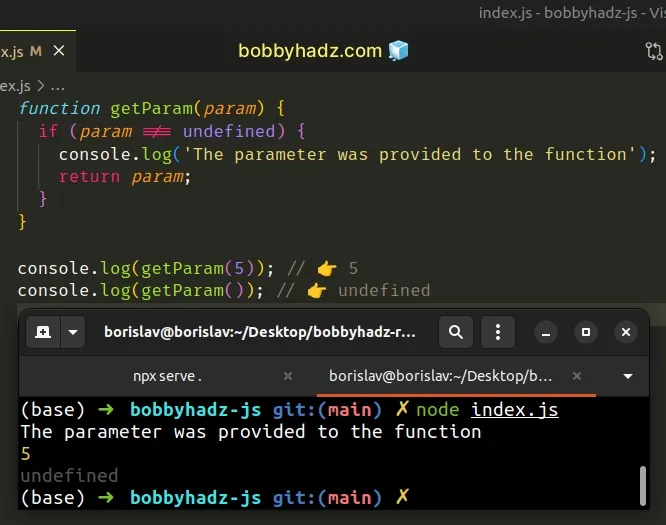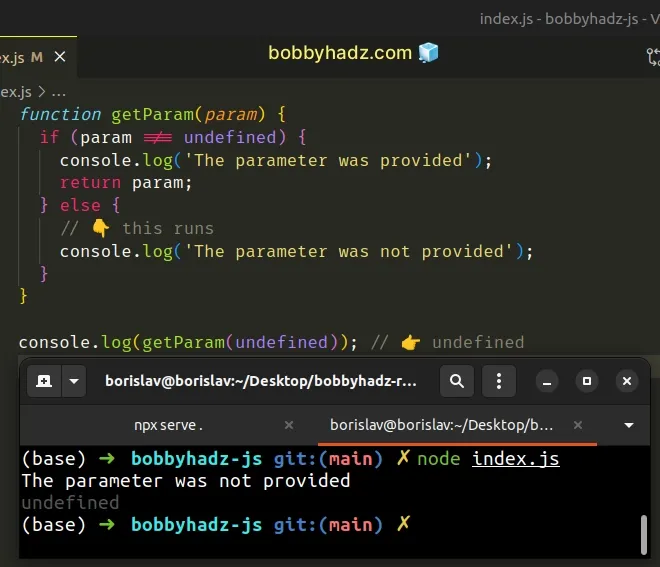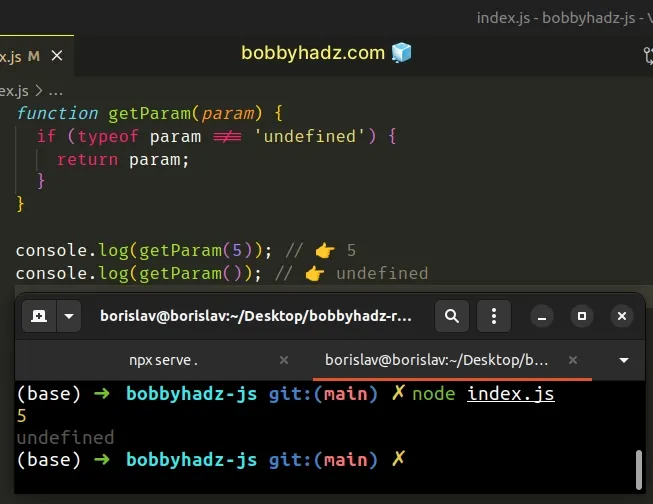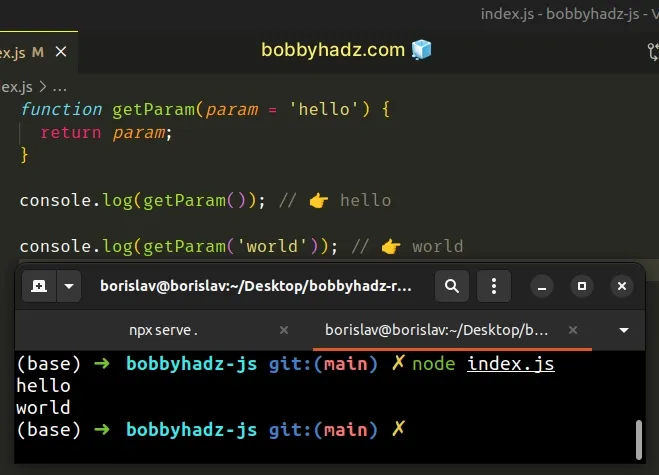Check if a Parameter is provided to Function in JavaScript
Last updated: Mar 3, 2024
Reading time·2 min

# Check if a Parameter is provided to Function in JavaScript
To check if a parameter is provided to a function, use the strict inequality
(!==) operator to compare the parameter to undefined.
If the comparison returns true, then the parameter was provided to the
function.
function getParam(param) { if (param !== undefined) { console.log('The parameter was provided to the function'); return param; } } console.log(getParam(5)); // 👉️ 5 console.log(getParam()); // 👉️ undefined

We used the
strict inequality (!==)
operator to check if the value of the parameter is not equal to undefined.
If the condition passes, then the parameter is provided to the function.
if block wouldn't run if you explicitly pass an undefined value to the function.function getParam(param) { if (param !== undefined) { console.log('The parameter was provided'); return param; } else { // 👇️ this runs console.log('The parameter was not provided'); } } console.log(getParam(undefined)); // 👉️ undefined

I can't think of a good use case to do this, so I don't see this as a drawback.
If any other value is passed to the function, the if block runs.
# Check if a Parameter is provided to Function using typeof
Alternatively, you can use the typeof operator.
If the condition is met, the parameter is provided to the function.
function getParam(param) { if (typeof param !== 'undefined') { return param; } } console.log(getParam(5)); // 👉️ 5 console.log(getParam()); // 👉️ undefined

We used the typeof operator to get a string that indicates the type of a value.
Here are some examples of using the typeof operator.
console.log(typeof undefined); // 👉️ "undefined" console.log(typeof (() => {})); // 👉️ "function" console.log(typeof function () {}); // 👉️ "function" console.log(typeof null); // 👉️ "object" console.log(typeof []); // 👉️ "object" console.log(typeof {}); // 👉️ "object" console.log(typeof ''); // 👉️ "string" console.log(typeof 0); // 👉️ "number"
When the typeof operator is used on an undefined value, it returns the
string "undefined", which is exactly what we check for in our if statement.
# Assigning default values for function parameters
You can assign a default value for the parameter if there is a value that suits your use case.
function getParam(param = 'hello') { return param; } console.log(getParam()); // 👉️ hello console.log(getParam('world')); // 👉️ world

We used a default value of the string hello for when the function is invoked
without a parameter.
The default value is also used if the function gets passed a value of
undefined.
function getParam(param = 'hello') { return param; } console.log(getParam(undefined)); // 👉️ hello console.log(getParam('world')); // 👉️ world
If the function gets called with a value for the parameter, the supplied value is used.
# Additional Resources
You can learn more about the related topics by checking out the following tutorials:

